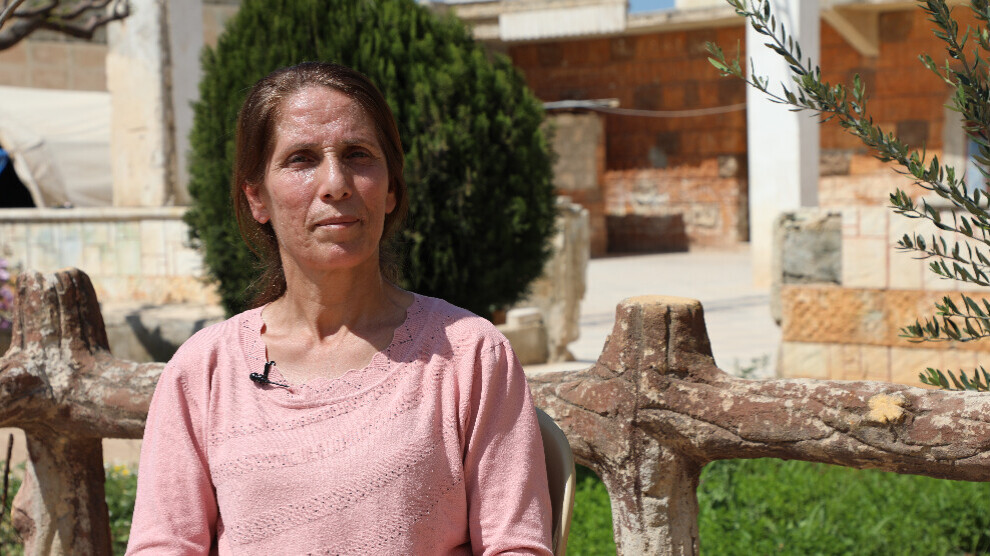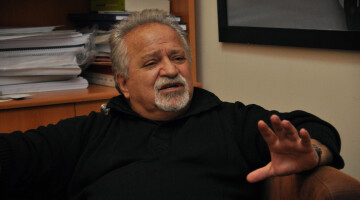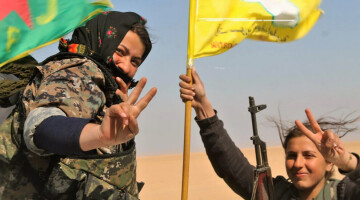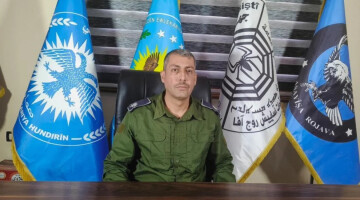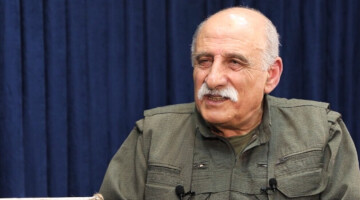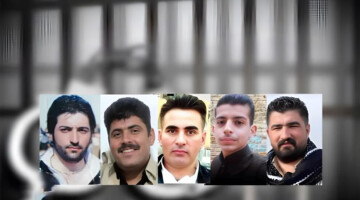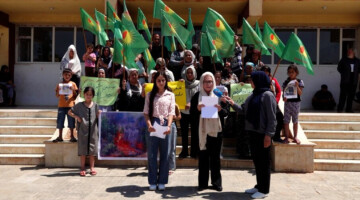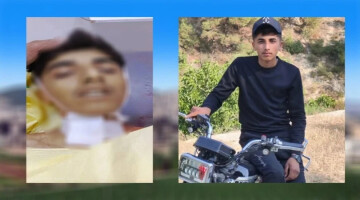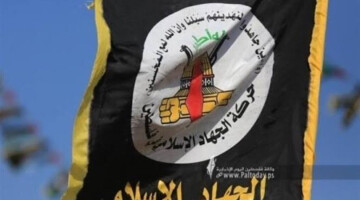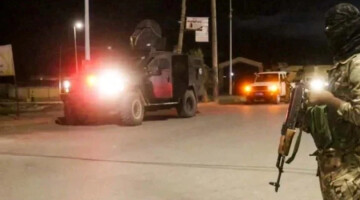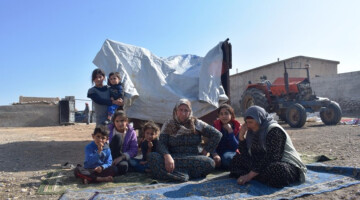Afrin-Shehba Canton Municipality continued the practices by the municipality in Afrin in Shehba in order to respond to the needs of the people of Afrin who migrated to Shehba after the Turkish occupation of Afrin. Everything was plundered, and the institutions and organizations were closed down, while people fled their homes. In 2023, water was delivered to the people in Afrin-Shehba Canton. In addition to the camps, the construction needs (tiles, cement, etc.) of all the districts and villages of Shehba were met. The houses damaged in the earthquake were repaired, and 243 tents were set up in Berxwedan and Serdem Camp for the families whose houses were damaged (families coming from Aleppo). With the expansion of the camps, work was carried out to improve the sewage system. On the occasion of 4 April, a park dedicated to Kurdish People's Leader Abdullah Öcalan was opened, and road work was carried out.
New water wells were opened in the villages, while water wells in the village of Aqîbê in Til Rifet, Ehres and Ehdas districts were converted into solar energy systems, and 2 million 666 thousand 620 liters of diesel oil were distributed. In the canton, which has 75 generators, the electricity needs of 20 thousand 605 families were met.
Elif Mihemed, co-mayor of Afrin-Shehba Canton Municipality, spoke to ANF about the municipal system established in the canton, the difficulties experienced and the year’s activities.
No more traces of mercenaries left
Shehba has been subjected to attacks by the Damascus government, ISIS and the Turkish state for many years, and the municipality is trying to create a living space for the people who came there after the invasion of Afrin. Elîf Mihemed said: "Underground and surface resources have been plundered. Water, electricity, medical intervention centers, food production and sales areas, and even a shelter roof had been destroyed.
The people of Afrin were forced to reside in Shehba, the newly liberated lands from occupation. The first work we carried out was to erase the traces left by the occupying forces and mercenaries."
Mihemed added: "The bad air that permeated Shehba, its polluted streets turned into a cemetery, its quarries were cleaned up with much difficulty. And if the already existing impossibility was not enough, the attacks by the Turkish state and the embargo of the Damascus government were making our job even more difficult. In this process, the municipality had a great responsibility."
Mihemed said that "there were no materials to make the city livable again. Yet, we are trying to create these materials, but there are many obstacles to frustrating this effort. The policy of the Damascus government was deepening the problems. The people were aware of this. This naturally developed responsibility and participation. The people supported their municipality. We were experiencing the full reward of public municipalism. Despite the financial and moral support of the people, the municipality had limited opportunities. We had the team and equipment to work with. Work began to quickly deliver water and electricity to people. Generators were activated to solve people's electricity problem. Electricity was delivered to villages where it didn’t arrive. The lack of water wells and the fact that the existing ones were destroyed and rendered unusable by ISIS was also creating a serious crisis. First, we checked the quality of the water through analysis and purification. The destroyed wells were repaired and put back into service. Water tanks were installed at critical points. Efficiency was achieved by delivering water to all the people."
'A massacre policy is being implemented'
Mihemed continued: "Although we have a limited number of tools, we strive to get the best efficiency from the available facilities. We need big vehicles. Both the municipality and the people have experienced huge difficulties in the past six years. In particular, according to the decision taken by UNICEF on 15 February, water will not be supplied to the camps. UNICEF's decision to cut off water, the Damascus government's embargo, the Turkish state's attacks not only leave people hungry and thirsty, but also mean the implementation of a policy of massacre."
Mihemed said: "We have accelerated the work to create the infrastructure and sewerage works of the 5 camps we run. We strive to prevent our people from experiencing health problems due to cold and heat. UNICEF has been meeting the water needs of the camps for 6 years. The sudden decision to cut off water caused serious problems in the camps. It has been determined that bacteria and viruses spread rapidly. We approach this issue very carefully, and we take care not to reflect this crisis on our people. We work together with our municipality and the people of the camp to create a more livable and peaceful environment in the camp. Seminars are given on the importance and saving of water. We are also developing an understanding in order to use energy resources on the right basis, get good efficiency and protect the opportunities."
Municipality is based on ecology
The basic policy and projects of 2023 are water-centred, said Elîf Mihemed, adding: "There are 30 water wells in the canton. Too few compared to our needs. The number of water wells that can be used in the summer months decreases to 20. That's why some wells were made deeper. The number of water tanks was increased as a precaution. Environmental maintenance and park construction activities continue. We put special attention to areas where our people, especially our children, can be alone with nature and develop their social activities. A backup generator was provided. Our municipality also undertook the repair of the houses of our earthquake-affected families and the renovations were carried out. A solar energy system has also been activated in some neighborhoods, institutions and martyrs' cemeteries."
Towards a stronger municipality
Elîf Mihemed said that the projects that were planned for but could not be completed in 2023 will continue in 2024 and added: "We will implement our waste disposal project in 2024. We will continue our road asphalting project. We will create an ecological society by launching a joint medical waste project with Heyva Sor. The lighting system of the district streets will be made with solar energy. New water wells will be dug in Ehdes, Fafîn district and Berxwedan Camp. We will continue to plant saplings in villages and districts and continue the unfinished asphalt work in 2023."

